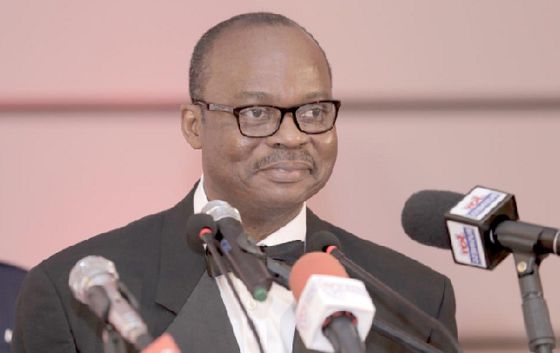The Bank of Ghana (BoG) has endorsed measures by the Ministry of Finance to cap the amount of domestic bonds that foreign investors can hold as part of efforts to reduce the vulnerabilities that the economy endures.
The Governor of BoG, Dr Ernest Addison, said the central bank was part of the team that “decided that we need to manage our vulnerabilities by trying to set a cap on how much of our domestic bonds we should allow non-resident investors to hold.”
Dr Addison told journalists on July 19 that while the bank endorsed the measure, the team of experts from the central bank and the Ministry of Finance were yet to settle on a suitable “indicator” to be used in achieving the objective.
He explained that among the measures being considered was the setting up of investor holdings relative to the country’s reserves.
This, he said, was a good measure to assess and counter vulnerabilities although other measures were also under consideration.
The Governor had earlier explained that although the debt stock was sustainable, the large foreign investor component made the economy vulnerable to the sentiments of those non-resident investors.
The Governor was responding to a question on ongoing attempts by the Ministry of Finance to cap foreign investor participation in the country’s domestic debts.
In mid-June, the ministry told the GRAPHIC BUSINESS that it was “thinking” of placing a cap on foreign investor participation in the domestic bond market as part of a bigger plan to address the overexposure to non-resident investors.
As part of the plan, the ministry said it would either link non-resident investor holdings of domestic debts to the country’s reserves or determine a threshold that their holdings must not exceed.
Once determined, it said the decision would be put into a policy, making it compulsory for the ministry to comply in the marketing and sale of the domestic bonds.
Originally praised as a sign of foreign investor confidence in the economy, the holdings of non-resident investors in the public debt stock is now turning out to be a headache to the government.
Its size, currently above 60 per cent of the GH¢200 billion debt stock as of May, this year, ties the economy to the sentiments of foreign investors, thereby increasing the vulnerabilities that the debt levels pose, Dr Addison said.
It also increases the country’s demands for foreign exchange, as interest on the foreign component is paid with foreign currencies and the non-resident investors would also normally convert their earnings into foreign currencies to be able to repatriate.
In January, this year, when BoG cut its policy rate by 100 basis points to 16 per cent, the foreign investors reacted by repatriating portions of their holdings.
In return, the cedi fell by 11 per cent between February and March before normalising to a year-to-date depreciation rate of around eight per cent in June.
On the other side, the foreign investor participation in the domestic bond market is an avenue for foreign exchange, which BoG uses to manage the country’s reserves and cushion the cedi against depreciations.
Parliament must check
An Economist and Senior Researcher at the Institute for Fiscal Policy (IFS), Dr Said Boakye, said he doubted the effectiveness of the proposed cap in addressing the problem.
“If they do it, it is good because something has to be done because the country is now in a cycle of debt.
“But I doubt, in the sense that the tendency to borrow is very high,” he said.
He said he foresaw a situation where the ministry would abuse the policy in order to meet its own demands.
Consequently, he said rather than making it a self-imposed restriction, Parliament should be made to hold the ministry to account in the event that the cap is abused.
Sustainable measures
Dr Boakye further observed that the situation with the debt composition was as a result of the government’s attempt to borrow to manage the cedi.
“Basically, they have been trying to manage the cedi by resorting to foreign borrowing and that is not sustainable,” he said in an interview.
“So, if you see that the cedi, to some extent is sustained, it is because foreign currencies is coming in but this not sustainable,” he said, pointing at the need for foreign currencies to service those debts.
With the economy being unable to meet foreign currency demands due to slow growth, the Research Fellow at the IFS said the country was forced to borrow to be able to service the debt, resulting in a debt cycle that poses risks to the economy.
The sustainable solution, he said was a drastic reduction in borrowing and strong growth in domestic revenues.





